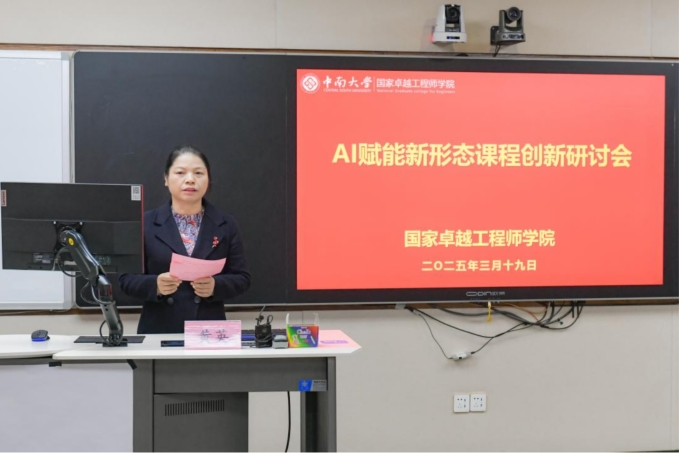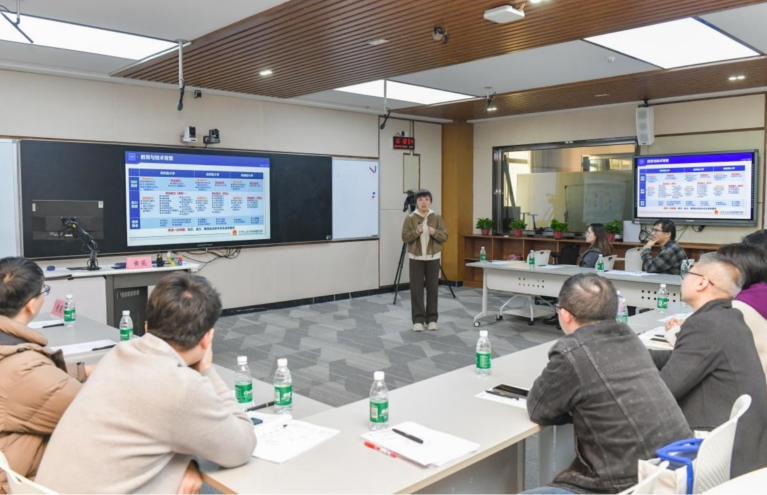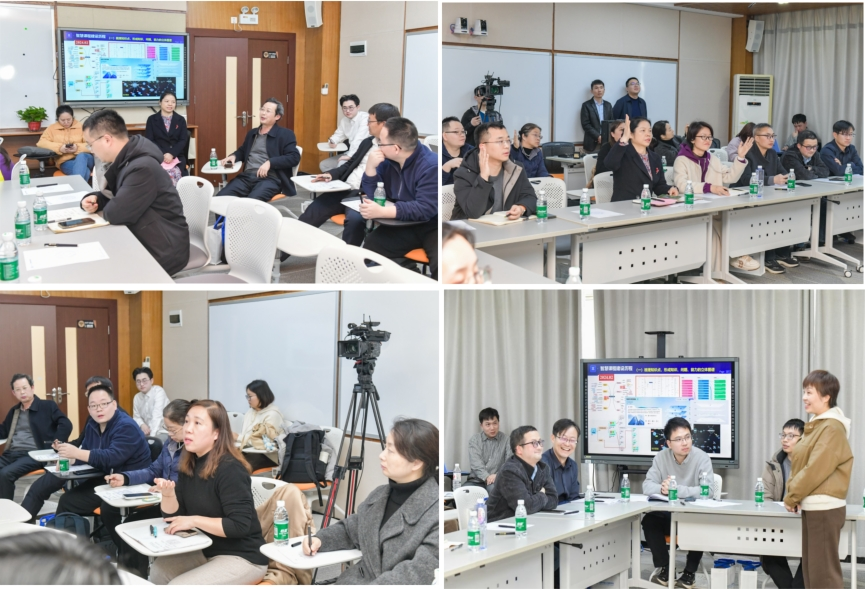

Virtual Teaching and Research Section for Low-Carbon Intelligent Metallurgical Engineering Successfully Holds Innovative Seminar on "AI-Empowered New-Format Courses"
Time:2025-03-21 Visits:
In the era of rapid advancements in smart and intelligent technologies, artificial intelligence is reshaping education at an unprecedented pace. To explore the deep integration of AI technology with higher engineering education, the innovative seminar on "AI-Empowered New-Format Courses" was successfully held on March 19, 2025, in Conference Room 502 of the North Science and Education Building at Central South University. The event was co-hosted by the Virtual Teaching and Research Section for Low-Carbon Intelligent Metallurgical Engineering and the National Graduate College for Elite Engineer of Central South University, with Zhihuishu (Wisdom Tree) as the co-organizer. The seminar adopted a hybrid online-offline format, attracting over 70 faculty members from institutions including Central South University, Chongqing University, Hunan University of Technology, and Kunming University of Science and Technology. The event was chaired by Chen Ailiang, Vice Dean of the National Graduate College for Elite Engineer of Central South University.

The seminar featured a keynote speech by Associate Professor Huang Ying from the National University of Defense Technology, who is also the leader of a provincial-level elite course in Hunan Province. Under the theme "Digital Intelligence Empowerment: AI-Assisted Teaching Reform," she shared insights on how AI technology can transform teaching scenarios, using the construction of the smart course "Fundamentals of Information Theory and Coding" as an example. She demonstrated strategies such as tailoring course versions to different learning needs, enhancing classroom engagement through dynamic teaching methods, integrating teaching and research via problem-based guidance, and real-time monitoring through task-driven approaches. Professor Huang emphasized that AI not only improves teaching efficiency but also enables data-driven, personalized education at scale.

During the discussion session, participating faculty actively raised questions and engaged in in-depth exchanges on the applications and challenges of AI technology in curriculum development. Together, they explored ways to leverage AI for enhancing teaching effectiveness and the quality of talent cultivation. Experts unanimously agreed that with the advancement of big data and AI technologies, smart education will become an inevitable trend in the future of education. Universities should embrace this transformation and promote the development and application of smart courses.

In her closing remarks, Vice Dean Chen Ailiang highlighted the significance of the seminar. She noted that the event provided valuable experience and inspiration for member institutions of the Virtual Teaching and Research Section in developing new-format courses. She encouraged faculty to integrate AI technology into curriculum development to advance the construction of innovative course systems and inject new momentum into high-quality talent cultivation. Chen emphasized that the Virtual Teaching and Research Section for Low-Carbon Intelligent Metallurgical Engineering is committed to promoting the application and development of smart education in the field of low-carbon metallurgy. Moving forward, it will strengthen collaboration and exchange with domestic and international universities to explore more possibilities for AI-empowered course innovation.
The success of this seminar has laid a solid foundation for the Virtual Teaching and Research Section's innovative exploration in the field of smart education. In the future, the section will continue to collaborate with universities specializing in metallurgical engineering to jointly write a new chapter in the evolution of smart education.
[First Reviewer: He Jiamin, Second Reviewer: Dai Yanyang, Third Reviewer: Wang Qinmeng]